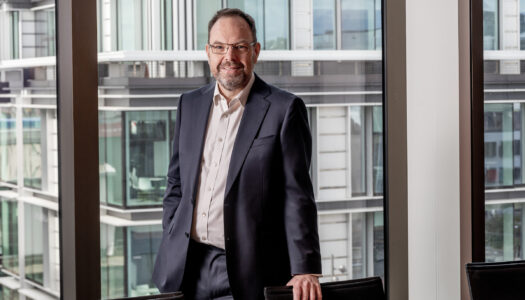Which makes it even more interesting that the outcomes of COP27 in November were somewhat muted. Some matters were advanced – the Loss and Damage fund agreement was a main area of progress – but other areas seemed to stall.
It wasn’t the worst outcome. But it wasn’t the leap forward some might have hoped for, particularly after an energetic COP26 the year before, after which there was real optimism around countries’ commitments to work towards keeping temperature rises below a 1.5C limit, in accordance with the 2015 Paris agreement.
In tandem with this, recent months have also been characterised by the emergence of an alternative counter narrative to the almost one-way direction of traffic we’ve become used to in the sustainable finance landscape.
We’ve seen fund managers and financial institutions being called out for misleading green-labelling and greenwashing. We’ve seen attacks on the quality of data. We’ve seen confusion around the different regional disclosure and reporting regimes in the US, EU and UK. And we’ve seen concern around the intense focus on the ‘E’ of ESG at the expense of the potential of the societal and governance strands.
We’re also hearing concerns around capacity issues when it comes to the enormous efforts required to align strategies and consolidate standards.
This is, perhaps, a healthy challenge to the ESG movement. It is right that mass movements that have the potential to fundamentally change our planet should be challenged, so that the parameters and frameworks all of this exists in can be the best they can be.
The important thing is that we must not be afraid of these challenges or lose our focus on sustainability.
Maintaining the speed of progress in this space is absolutely crucial – and this was made exceedingly clear at a recent meeting of the UN’s International Network of Financial Centres for Sustainability (FC4S) which Jersey Finance attended alongside some 40 other countries.
At that meeting, a number of challenges for the development of sustainable finance were discussed – amongst them the availability of talent and skills within the sustainable finance sphere and the need to maintain trust in ESG.
Discussions on the latter revolved around shifting our efforts from a ‘risk focus’ to an ‘impact focus’ and tackling the challenge of managing ESG data in order to deliver satisfactorily on objectives.
We have collectively reached something of an inflexion point for the sustainable finance agenda. Having been through a period of objective and target setting, we are now moving into an implementation phase. And for that to materialise, there are going to be challenges around integrity, measurement, trust and accountability.
It’s important for IFCs like Jersey to be part of these conversations. Mobilising capital and driving alignment to the Paris agreement and Sustainable Development Goals at pace is now key. National regulation alone will not achieve this; a multi-faceted approach is needed, incorporating innovation, bold policies, and firm commitments to sustainability.
And that’s why, in realising its own sustainable finance strategy, Jersey Finance remains focused on collaborating with key partners at home and overseas, through networks like the FC4S, to maintain momentum.
It’s why we continue to drive ESG skills, with more than 50 people in Jersey having made use of the ESG skills platforms supported by Jersey Finance this year, and a number of firms and individuals being recognised at our first ever Sustainable Finance Awards.
And it’s why, working with Government and the financial services regulator, we continue to hone our environment to create a robust framework investors can have confidence in, and that retains flexibility to cater for future innovation – cognisant, for instance, that transition financing is going to be key to the coming decade.
Our aim is that by 2030, Jersey will be recognised by its clients, key stakeholders, and other partners as the leading sustainable international finance centre in the markets we serve and our plan to achieve this goal is laid out in our sustainable finance vision and strategy.
And we are very clear – if we are to realise our objectives, we stand ready to work collaboratively with others to build trust and maintain the positive momentum we have all worked hard to achieve so far.




